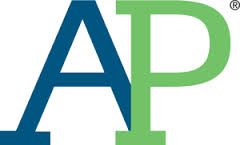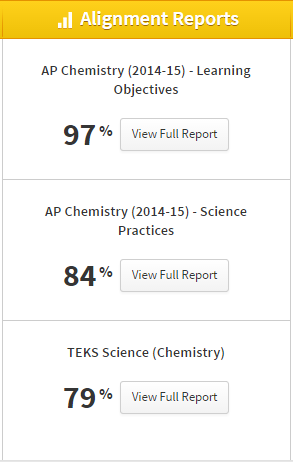Hundreds of AP teachers from across the country will arrive in Austin, Texas, this week to attend the AP Annual Conference. Many will attend sessions with master teachers to learn how to teach the rigorous AP content. A critica l component to students’ success in AP courses is their instructional materials. The materials must teach students not only the content required for each course, but also the skills the courses are designed to develop.
l component to students’ success in AP courses is their instructional materials. The materials must teach students not only the content required for each course, but also the skills the courses are designed to develop.
Districts spend more money to purchase AP products than any other instructional materials. When Learning List started receiving requests for reviews of AP materials, we contacted College Board to inquire whether they review and recommend texts to AP teachers. We were told that College Board does not recommend texts and that they shared our concern that AP materials must align with the course frameworks for AP courses in order to support student success. They explained that in the past, course descriptions were too general to make an alignment of materials instructionally meaningful. However, in response to teachers’ requests, over a 15 year schedule, College Board will be publishing new course frameworks that specify the content and skills students are expected to learn and will be tested on for each AP course.
With a shared goal of helping publishers produce materials that will prepare students for success in AP courses, Learning List worked with College Board to develop alignment templates based on the recently r eleased course frameworks. Learning List now reviews AP materials for alignment to the Learning Objectives (LO) (i.e., what students must be able to do) and separately to the Skills and Practices (i.e., larger transferable skills) contained in the newly revised course frameworks for AP Physics (1 and 2), Chemistry, Biology, World History, European History, and US History. Reviews of materials for AP Calculus AB and BC will begin this fall. For Texas subscribers, Learning List also reviews AP texts for alignment to the Texas Essential Knowledge and Skills (TEKS) for the relevant course.
eleased course frameworks. Learning List now reviews AP materials for alignment to the Learning Objectives (LO) (i.e., what students must be able to do) and separately to the Skills and Practices (i.e., larger transferable skills) contained in the newly revised course frameworks for AP Physics (1 and 2), Chemistry, Biology, World History, European History, and US History. Reviews of materials for AP Calculus AB and BC will begin this fall. For Texas subscribers, Learning List also reviews AP texts for alignment to the Texas Essential Knowledge and Skills (TEKS) for the relevant course.
Learning List’s alignment templates not only help educators identify where the materials are or are not aligned, but also provide ongoing professional development to help AP teachers better understand the connections between Learning Objectives and Science Practices in AP science courses and between the Thematic Learning Objectives and Historical Thinking Skills in AP social studies courses.
Recognizing the unique nature of AP courses, Learning List hires subject matter experts (SMEs) who are certified in the subject of the AP course and have experience teaching the course, as well. Our SMEs report that reviewing AP materials is especially challenging because of the density of the texts. “One cannot skim over a page or video to see whether a topic is addressed; you have to read all the text to determine whether it is aligned to an LO,” they explained.
Subscribing districts have requested reviews of AP materials from several publishers; Wiley Publishing was the first to submit their products for review. Wiley representatives commented that Learning List’s review process helped them better understand how educators will use the new course frameworks instructionally, which in turn will help them develop products more closely aligned to the content and skills of the frameworks. As a result, teachers and students will benefit.